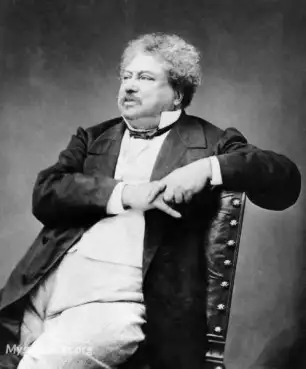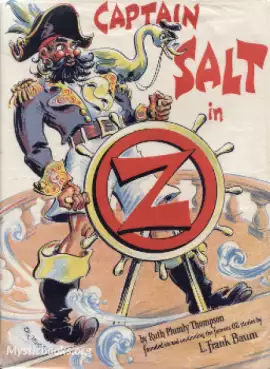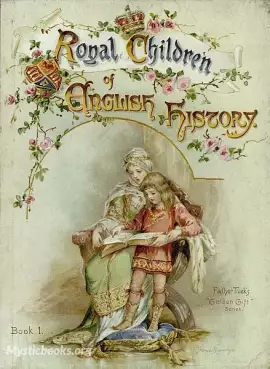
Twenty Years After
'Twenty Years After' Summary
D'Artagnan and Mazarin
The action begins during the regency of Queen Anne of Austria (term 1643–1651), with Cardinal Mazarin as First Minister. D'Artagnan, who seemed to have a promising career ahead of him at the end of The Three Musketeers, has for twenty years remained a lieutenant, and seems unlikely to progress despite his ambition and the debt the queen owes him. He is summoned by Mazarin, who requires an escort; the French people detest Mazarin, and are on the brink of rebellion (La Fronde). D'Artagnan is sent to the Bastille to retrieve a prisoner, who turns out to be his former adversary, the Comte de Rochefort.
After renewing his acquaintance with d'Artagnan and making a promise to aid his advancement, Rochefort is brought to his audience with Mazarin, where he learns that the cause for his imprisonment was his refusal to serve Mazarin at an earlier stage. He does, however, remember his promise, and though he offers his own service to Mazarin, he refuses to watch over the Duc de Beaufort, who is imprisoned at the time, and soon learns that, in consequence, he is to be returned to the Bastille, though this does not deter him from speaking highly of the achievements of d'Artagnan and the Three Musketeers.
Having determined that d'Artagnan is the man he seeks, Mazarin enters the chambers of the Queen to let her know that he has enlisted the man who had served her so well twenty years earlier. The Queen, feeling guilty for having forgotten d'Artagnan's service, gives Mazarin a diamond ring to return to d'Artagnan, one which she had previously given him that d'Artagnan sold. The avaricious Mazarin merely uses the diamond to show d'Artagnan that he is once again to enter the Queen's service. He commissions d'Artagnan to go in search of his friends.
Reunion of the Four Musketeers
D'Artagnan is at a loss; he has completely lost touch with his friends, who have resumed their real names. Athos, the Comte de la Fère, had returned to his estate near Blois; Porthos, Monsieur du Vallon, had married a lawyer's widow; and Aramis became a priest, the Abbé d'Herblay. Fortune intervenes when Planchet, his old servant, enters d'Artagnan's chambers, attempting to escape arrest for aiding the escape of Rochefort. Through Planchet, he locates Bazin, Aramis' old servant, now beadle at Notre Dame. Though Bazin is unwilling to help, d'Artagnan is able to find out, through an altar boy, that Bazin makes frequent visits to Noisy. D'Artagnan and Planchet go there, where they are set upon by a group who think them Frondeurs while outside the house of Madame de Longueville. When this group is satisfied that d'Artagnan is not the man they seek, Aramis surprises Planchet by dropping onto his horse from the tree in which he had been hiding.
D'Artagnan finds that the former musketeer, who had thought of little other than being a priest, is now a priest who thinks of little other than being a soldier. Aramis is not willing to enter into Mazarin's service, however. D'Artagnan leaves but waits in hiding, suspecting that Aramis is both the Frondeur who had been sought earlier and the lover of Madame de Longueville. His suspicions are confirmed.
The visit to Aramis was not fruitless, as it yielded the address of Porthos. When d'Artagnan arrives at Porthos' estate he finds Mousqueton, who is overjoyed to meet d'Artagnan and Planchet. He finds that Porthos, despite his wealth and life spent in pursuit of amusement, is not happy. Porthos desires to become a baron, and with this bait d'Artagnan lures him into Mazarin's service.
D'Artagnan then continues his search for Athos, whom he finds almost completely changed, to be an example to his ward, Raoul. Though Athos will not be enlisted into Mazarin's service, and indeed reveals that his sympathies lie against Mazarin, the two arrange to meet again in Paris; Athos wishes to bring Raoul there to help him to become a gentleman, and also to separate him from Louise de la Vallière, with whom Raoul is obsessively in love. In Paris, Athos visits Madame de Chevreuse, the former mistress of Aramis, with whom, under the name Marie Michon, Aramis had much communication in The Three Musketeers. Athos reveals, discreetly, that Raoul is the son born of a chance encounter that Athos had with her, and through her gets a letter of recommendation for Raoul to join the army.
The Duc de Beaufort
The scene then changes, to focus on the Duc de Beaufort, Mazarin's prisoner at Vincennes, who finds a new jailer, Athos' servant, the silent Grimaud. Grimaud instantly makes himself disagreeable to the Duc, as part of an escape plot. Using messages passed to Rochefort using tennis balls, they arrange to have a meal on Whitsuntide, to which La Ramée, second in command of the prison, is invited. The escape is successful, but d'Artagnan and Porthos are in pursuit.
After a race against time, and having defeated several adversaries along the way, Porthos and d'Artagnan find themselves in the dark, surrounded, with swords crossed against adversaries equal to them, who are revealed to be Athos and Aramis. The four arrange to meet in Paris at the Place Royale; both parties, now finding themselves enemies, enter fearing a duel, but they reconcile and renew their vows of friendship.
Book Details
Authors

Alexandre Dumas
France
Dumas began his career by writing plays, which were successfully produced from the first. He also wrote numerous magazine articles and travel books; his published works totalled 100,000 pages. In the...
Books by Alexandre DumasDownload eBooks
Listen/Download Audiobook
- Select Speed
Related books

Walpole by John Morley
This biography explores the life and career of Robert Walpole, considered the first prime minister of Great Britain. It delves into his political stra...

Popular History of France from the Earliest Times vol 3 by François Pierre Guillaume Guizot
François Guizot's "Popular History of France" provides an engaging and accessible account of French history from its earliest origins to the mid-19th...

Royal Romances of Today by Kellogg Durland
Royal Romances of Today by Kellogg Durland is a collection of three biographies of European queens: Alexandra Feodorovna of Russia, Elena of Italy, an...

King Henry IV, Part 2 by William Shakespeare
Henry IV, Part 2 is a history play by William Shakespeare, believed written between 1596 and 1599. It is the third part of a tetralogy, preceded by Ri...

Captain Salt in Oz by Ruth Thompson
A voyage on the famous Nonestic Ocean! What could be more thrilling than that? We—many of us—have taken trips on the prosaic Atlantic or even Pacific,...

Kings and Queens of England with Other Poems by Mary Ann H. T. Bigelow
This volume of poems by Mary Ann Bigelow combines historical research with literary artistry to present the "Kings and Queens of England" in verse. Bi...

Popular History of France from the Earliest Times vol 4 by François Pierre Guillaume Guizot
François Pierre Guillaume Guizot's "Popular History of France" is a comprehensive and engaging account of French history from its earliest beginnings...

Life of Prince Metternich by George Bruce Malleson
This biography of Klemens von Metternich, the influential Austrian foreign minister and chancellor, explores his role in shaping European politics dur...

Old Mortality by Sir Walter Scott
It is a conflict between the Covenanters, a group of Presbyterians who opposed the rule of Charles II, and the Royalists, who supported the monarchy....

Royal Children of English History by Edith Nesbit
"History is a story, a story of things that happened to real live people in our England years ago; and the things that are happening here and now, and...
Reviews for Twenty Years After
No reviews posted or approved, yet...